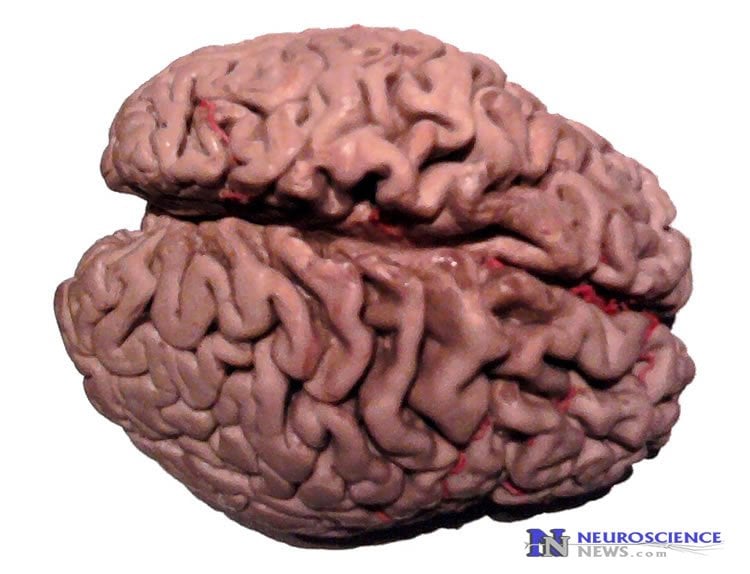Results suggest greater emphasis on managing slumber habits of people with AD risk.
Chemical changes in brain cells caused by disturbances in the body’s day-night cycle may be a key underlying cause of the learning and memory loss associated with Alzheimer’s disease, according to a University of California, Irvine study.
The research on mice, led by UCI biomedical engineering professor Gregory Brewer, provides the first evidence that circadian rhythm-altering sleep disruptions similar to jet lag promote memory problems and chemical alterations in the brain.
Clinical application of this finding may lead to more emphasis on managing the sleep habits of people at risk for Alzheimer’s disease and those with mild cognitive impairment. Study results appear online in the Journal of Alzheimer’s Disease.
People with Alzheimer’s often have problems with sleeping or may experience changes in their slumber schedule. Scientists do not completely understand why these disturbances occur.
“The issue is whether poor sleep accelerates the development of Alzheimer’s disease or vice versa,” said Brewer, who’s affiliated with UCI’s Institute for Memory Impairments and Neurological Disorders. “It’s a chicken-or-egg dilemma, but our research points to disruption of sleep as the accelerator of memory loss.”
In order to examine the link between learning and memory and circadian disturbances, his team altered normal light-dark patterns with an eight-hour shortening of the dark period every three days for young mouse models of Alzheimer’s disease and normal mice.
The resulting jet lag greatly reduced activity in both sets of mice, and the researchers found that in water maze tests, the AD mouse models had significant learning impairments absent in the AD mouse models not exposed to light-dark variations and in normal mice with jet lag.
In follow-up tissue studies, they saw that jet lag caused a decrease in glutathione levels in the brain cells of all the mice. But these levels were much lower in the AD mouse models and corresponded to poor performance in the water maze tests. Glutathione is a major antioxidant that helps prevent damage to essential cellular components.

Glutathione deficiencies produce redox changes in brain cells. Redox reactions involve the transfer of electrons, which leads to alterations in the oxidation state of atoms and may affect brain metabolism and inflammation.
Brewer pointed to the accelerated oxidative stress as a vital component in Alzheimer’s-related learning and memory loss and noted that potential drug treatments could target these changes in redox reactions.
“This study suggests that clinicians and caregivers should add good sleep habits to regular exercise and a healthy diet to maximize good memory,” he said.
Funding: Kelsey LeVault and Shelley Tischkau of the Southern Illinois University School of Medicine contributed to the research, which received support from the National Institutes of Health (grant R01 AG032431).
Source: Tom Vasich – UC Irvine
Image Source: The image is in the public domain. Feel free to use.
Original Research: Abstract for “Circadian Disruption Reveals a Correlation of an Oxidative GSH/GSSG Redox Shift with Learning and Impaired Memory in an Alzheimer’s Disease Mouse Model” by LeVault, Kelsey R.; Tischkau, Shelley A. and Brewer, Gregory J. in Journal of Alzheimer’s Disease. Published online October 9 2015 doi:10.3233/JAD-150026
Abstract
Circadian Disruption Reveals a Correlation of an Oxidative GSH/GSSG Redox Shift with Learning and Impaired Memory in an Alzheimer’s Disease Mouse Model
It is unclear whether pre-symptomatic Alzheimer’s disease (AD) causes circadian disruption or whether circadian disruption accelerates AD pathogenesis. In order to examine the sensitivity of learning and memory to circadian disruption, we altered normal lighting phases by an 8 h shortening of the dark period every 3 days (jet lag) in the APPSwDI NOS2–/– model of AD (AD-Tg) at a young age (4-5 months), when memory is not yet affected compared to non-transgenic (non-Tg) mice. Analysis of activity in 12-12 h lighting or constant darkness showed only minor differences between AD-Tg and non-Tg mice. Jet lag greatly reduced activity in both genotypes during the normal dark time. Learning on the Morris water maze was significantly impaired only in the AD-Tg mice exposed to jet lag. However, memory 3 days after training was impaired in both genotypes. Jet lag caused a decrease of glutathione (GSH) levels that tended to be more pronounced in AD-Tg than in non-Tg brains and an associated increase in NADH levels in both genotypes. Lower brain GSH levels after jet lag correlated with poor performance on the maze. These data indicate that the combination of the environmental stress of circadian disruption together with latent stress of the mutant amyloid and NOS2 knockout contributes to cognitive deficits that correlate with lower GSH levels.
“Circadian Disruption Reveals a Correlation of an Oxidative GSH/GSSG Redox Shift with Learning and Impaired Memory in an Alzheimer’s Disease Mouse Model” by LeVault, Kelsey R.; Tischkau, Shelley A. and Brewer, Gregory J. in Journal of Alzheimer’s Disease. Published online October 9 2015 doi:10.3233/JAD-150026






